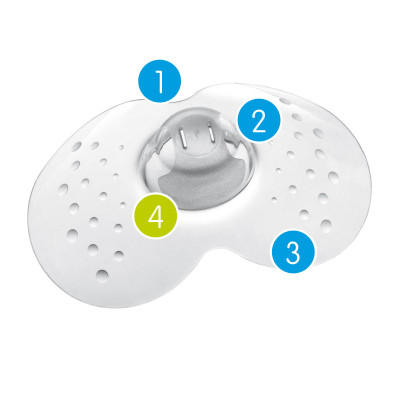Pezoneras Talla S
- Protección suave para los pezones adoloridos.
- Silicona SkinSoftTM para un amamantamiento natural.
- Forma exclusiva para máximo contacto con la piel.
- Dos unidades por paquete.
- Caja de almacenamiento apta para la esterilización incluida.

Superficie de silicona suave y sedosa para una sensación familiar.
Silicona muy fina para máximo contacto con la piel.
Deja pasar el aire entre el bebé y la pezonera. Especialmente suave para la piel del bebé.
Permite al bebé sentir y oler la piel de la mamá.
Vídeos de productos
Todos los productos MAM están fabricados con materiales libres de BPA y BPS.
MAM SkinSoft™: aceptada fácilmente por los bebés, pues la reconocen como algo familiar
This product comes in a sterilizing & carry box - for convenient and time-saving sterilizing in the microwave
Bisphenol A (BPA) is an important component for the manufacturing of polycarbonate (PC), whereas Bisphenol S (BPS) is an organic chemical used to make polysulfone. Among other items, food packaging, plastic utensils and baby bottles are just a few examples of products made with PC, whereas the main usage of BPS is in thermal papers and inks. The problem: Trace amounts of chemical substances gradually leach out of the plastic into the food and might eventually get into the body. This can affect small children and infants in particular.
As a result of exposure to BPA, experts and studies have seen disruptions to the hormone system and brain, diabetes and heart damage as well as an increased risk of cancer. Although scientific evidence is not yet conclusive, the European Commission - based on the precautionary principle - has banned the usage of BPA in baby bottles in order to protect the health and safety of babies and small children.